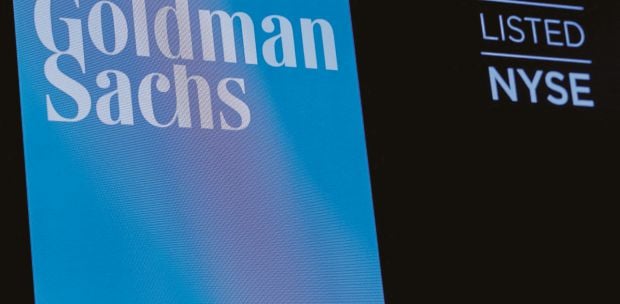KUALA LUMPUR: The government's position that Washington should pay Malaysia a share of the fines imposed on Goldman Sachs for its role in the 1MDB saga is fair as Malaysians were the actual victims of the financial scandal.
Economist Dr Geoffrey Williams said the US$2.9 billion fines paid by Goldman Sachs to the US government was a combination of penalties and punishments in the negotiated settlement of the criminal case, rather than a direct recovery of losses to aggrieved parties such as Malaysia.
"Whilst the courts apply the US law and have issued the punishment according to the law, there are wider issues of a sense of fairness and recovery of losses suffered in Malaysia.
"So it appears reasonable for 1MDB asset recovery task force chairman Datuk Seri Johari Abdul Ghani to demand a portion of the payments made for the settlement of the case and the dropping of criminal charges," he told the New Straits Times.
Williams underscored the long-term economic impacts of the claim, saying that while it is unlikely that any compensation will fully recover the losses incurred, there are significant economic consequences that need to be addressed.
He said one area is the opportunity cost of what could have been done with the money lost in terms of economic growth and development.
"Another area of economic concern is the costs of paying off the outstanding liabilities which is a net loss and will require government revenue and taxes to be used for repayments rather than other priorities like healthcare, education, and social protection.
"It also contributes to the very tight fiscal position that has huge committed spending in debt payments before other operational spending can be considered," he said.
Earlier today, Johari, who is also Plantation and Commodities Minister, said Malaysia was entitled to receive some compensation paid by Goldman Sachs to authorities in the US.
He said while the Malaysian government appreciated the US' efforts in the recovery of 1MDB funds, it was well below the US$4.5 billion that was siphoned off from Malaysians.
Bank Muamalat Malaysia Bhd chief economist Mohd Afzanizam Abdul Rashid emphasised that any inflows of funds from the recovery efforts would bolster the government's financial position.
"This shows that the recovery effort enacted by the government is bearing fruit. Any inflows of funds would certainly help improve the government coffers," he said.
Echoing the views, Universiti Kuala Lumpur Business School economic analyst Associate Professor Aimi Zulhazmi Abdul Rashid said it is a fair request considering the Malaysian people are the actual victims of the scandal.
Aimi highlighted that the debt repayment stemming from the 1MDB scandal will largely come from taxpayers' money, which is counter-productive for the nation's economic growth.
"Rather than 'penalising' the taxpayers to the extent of raising income taxes and reintroducing Goods and Services Tax in order to clear the 1MDB debt, it is imperative to recover as much as possible from the sources. For example, we can seek full compensation from the US government for the US$2.9 billion fines imposed on Goldman Sachs," he said.
Putra Business School economic analyst Associate Professor Dr Ahmed Razman Abdul Latiff said compensation will not be enough but at least it will save the government a few billion in terms of its liabilities and commitment to settling the 1MDB debts.
Meanwhile, UCSI University Malaysia associate professor of finance and research fellow at the Centre for Market Education Dr Liew Chee Yoong said the Malaysian government needs to be compensated fully the balance US$2 billion on top of the US$2.5 billion paid by Goldman Sachs to it as the total amount of money defrauded is US$4.5 billion.
"This amount has not included interest compensation yet on the US$4.5 billion defrauded. However, I assume that the government is not interested in claiming the interest compensation.
"That balance US$2 billion could include the US$1.4 billion assets linked to this fraud. However, the government needs to ensure that these assets can be liquidated easily to recover that exact amount.
"Otherwise, the US$2 billion needs to be compensated via cash," he added.
Liew does not think the amount claimed by the US government will contribute significantly to the 1MDB debt and interest payments.
"However, at least that's better than no compensation at all. This financial inflow would likely improve Malaysia's fiscal standing, at least in the short term, and send a positive signal to investors about the government's ability to manage past corruption issues and safeguard financial governance," he said.






